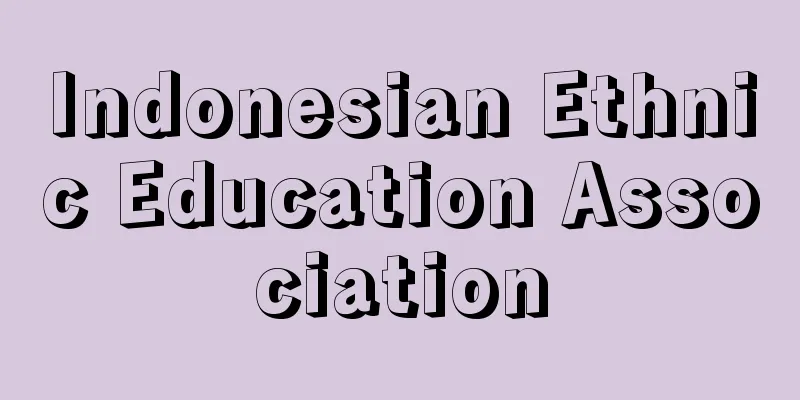Preferential duties - tokkeikanzei (English spelling)

|
Special preferential tariff treatment given to imports from a specific country. There are reciprocal tariffs, where countries that have close political and economic ties mutually apply tariff rates lower than the general tariff rates, and non-reciprocal tariffs, where a low tariff rate is applied unilaterally without demanding compensation (reverse preference) from the other country. Examples of the former include the Commonwealth Tariff of Preferences and the French Union Tariff of Preferences, which are known as existing preferences. Examples of the latter include the Generalized Tariff of Preferences, which was established with the aim of increasing exports and promoting economic development in developing countries. This is a system in which developed countries abolish tariffs or apply low tariff rates to imports from developing countries without seeking reciprocity. The Generalized Scheme of Preferences was proposed at the United Nations Conference on Trade and Development (UNCTAD) in 1964. Negotiations were difficult, but an agreement was reached in 1970. The European Community (EC) implemented the scheme in July 1971, followed by Japan in August, and by January 1981, 24 developed countries (donor countries) had implemented it. There are more than 110 developing countries (beneficiary countries) that have received preferential treatment. There are two methods for granting preferential treatment: the ceiling method and the escape-close method. The former is a method in which a certain limit is set for imports from developing countries, and preferences are granted up to that limit. The latter is a method in which there is no limit, and if preferential imports increase and cause damage to domestic industries, the preferential treatment is suspended. Japan uses the former method for mineral and industrial products, and the latter method for agricultural and marine products. The preferential treatment was initially implemented for 10 years, but both Japan and the EC have extended it for another 10 years. In addition, in the process of implementing the GSP, some of the beneficiary countries, such as newly industrializing countries (such as South Korea, Singapore, and Brazil), have become more internationally competitive. As a result, donor countries are increasingly of the opinion that such countries should be exempt from the application of preferences. In response to this situation, Japan has introduced country-specific and product-specific exceptions. [Kisuke Tanaka] [References] | |Source: Shogakukan Encyclopedia Nipponica About Encyclopedia Nipponica Information | Legend |
|
特定の国からの輸入品に対して供与される関税上の特別優遇措置。これには、政治的、経済的に密接な関係にある諸国間のみで相互に一般の関税率より低い税率を適用しあう相互主義的なものと、一方的に低い税率を適用し、相手国からその代償(逆特恵)を要求しない非相互主義的なものとがある。前者にはイギリス連邦特恵関税、フランス連合特恵関税などがあり、これらは既存特恵といわれる。後者には、発展途上国の輸出増大、経済発展の促進を目的として設けられた一般特恵関税がある。これは、先進国が発展途上国からの輸入品に対して、相互主義を求めることなく、関税を撤廃したり、低い関税率を適用するものである。 一般特恵関税は国連貿易開発会議(UNCTAD(アンクタッド))で1964年に提案され、交渉は難航したが、70年に合意が得られ、71年7月からヨーロッパ共同体(EC)が、続いて8月から日本が実施し、81年1月には先進24か国(供与国)が実施している。特恵供与を受けた発展途上国(受益国)は110か国以上となっている。特恵供与の方式にはシーリング方式とエスケープ・クローズ方式とがある。前者は、発展途上国からの輸入に一定の限度枠を決めておき、その枠内まで特恵を認める方式である。後者は、枠を決めず、特恵輸入が増加し、国内産業に被害が生じたときは特恵供与を停止する方式である。日本では鉱工業品については前者を、農水産品については後者の方式を採用している。特恵の実施期間は当初10年間であったが、日本とECはともにさらに10年間延長している。また、一般特恵関税を実施してきた過程において、受益国のなかには新興工業国(韓国、シンガポール、ブラジルなど)のように国際競争力をつけてきた国もある。そのため、このような国に対しては特恵の適用の例外とすべきだという考え方が供与国に強まっている。わが国では、このような状況に対応して国別・品目別例外措置を導入している。 [田中喜助] [参照項目] | |出典 小学館 日本大百科全書(ニッポニカ)日本大百科全書(ニッポニカ)について 情報 | 凡例 |
Recommend
NRDC - National Research and Development Center
Natural Resources Defense Council. Engaged in natu...
Perilla oil - Enoabura (English spelling)
A pale yellow oil obtained from perilla seeds. It ...
Upupidae
...An illustration of a bird from the Upupidae fa...
Diastolic blood pressure - Kakuchoukiketsuatsu
This is the blood pressure when the heart is dilat...
Education industry
This industry supplies various knowledge that is ...
nosal speculum
… [Endoscope structure] Different instruments are...
Tiruttakkadēvar (English spelling)
…At this time, the penetration of Aryan culture i...
Xiang Ying - Kouei
A leader of the Chinese Communist Party. His cour...
mulsum
…Romans generally had bread and cheese for breakf...
Hodgkinson, E.
…Completed in 1850. Designed by R. Stephenson, W....
Deductive reasoning - deductive reasoning
...an abbreviation for deductive inference (reaso...
One-leaf reed - Katahanoashi
Due to the natural environment, such as the terra...
Magnetic - Immediate
The existence of natural magnets has been known si...
Anchises (English spelling)
In Greek and Roman legend, he was a Trojan hero i...
shaking screen
…Vibrating screens in the broad sense are broadly...









